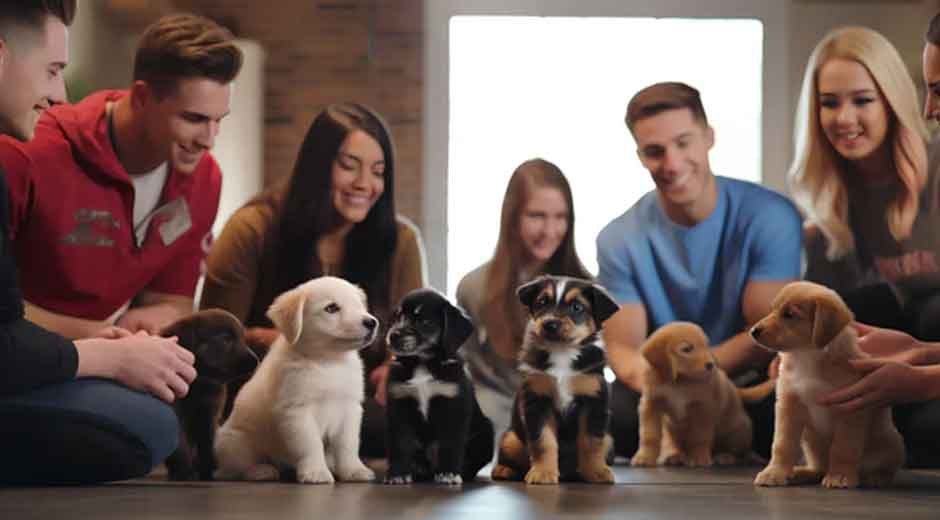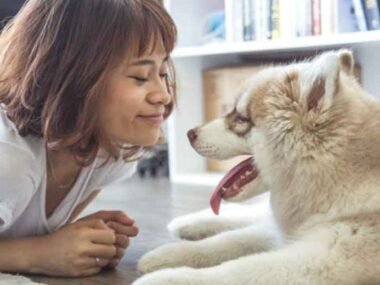Puppy training is one of the most rewarding and essential stages of pet ownership, shaping how a dog will behave, react, and connect with its environment for the rest of its life. At the heart of successful training lies socialization—the process of introducing puppies to people, animals, sounds, and settings that make up their daily world. This experience teaches them confidence, adaptability, and calmness in new situations. When puppies are properly socialized, they develop into well-mannered, friendly dogs that are easier to train and live with. Socialization is not just a single step in training; it’s a foundation that influences a dog’s behavior for years to come.
Building Confidence Through Early Exposure
One of the primary goals of socialization is to help puppies develop confidence by exposing them to a diverse range of environments during their critical developmental period. From the moment they are old enough to explore safely, puppies benefit from meeting new people, encountering other dogs, and hearing various sounds, such as traffic, vacuum cleaners, or doorbells. These early exposures teach them that new experiences are not threatening. Without this, puppies may grow into anxious or fearful adults that overreact to unfamiliar situations. Controlled, positive encounters help reduce stress and enable young dogs to learn to stay calm and curious, rather than afraid. By pairing these experiences with praise and encouragement, owners reinforce a puppy’s trust and comfort in the world around them. Confidence built through early socialization becomes the foundation for obedience and cooperative behavior later in training.
Encouraging Positive Behavior and Adaptability
Socialization plays a key role in preventing behavioral issues and promoting adaptability. When a puppy is introduced gradually to different experiences, it learns how to respond appropriately rather than through fear or aggression. Dogs that lack early socialization are more likely to exhibit excessive barking, display territorial tendencies, or react negatively to strangers and other animals. Training that incorporates frequent social interactions helps puppies develop well-rounded temperaments and adapt to new environments with greater flexibility. For example, introducing them to parks, pet-friendly stores, and new walking routes builds tolerance and curiosity. Many pet owners turn to professional programs, such as Puppy Training Tampa FL, to ensure their puppies receive structured socialization in a controlled and supportive setting. These programs help puppies engage with new people and pets under supervision, teaching them how to behave politely and confidently. Adaptable dogs are happier, more obedient, and far easier to manage both at home and in public settings.
Strengthening the Bond Between Puppy and Owner
Socialization also strengthens the relationship between the puppy and its owner, fostering mutual trust and communication. As puppies explore new environments and situations with their owners’ guidance, they begin to associate safety and reassurance with their handler’s presence. This creates a strong emotional bond based on trust and reliability, which becomes invaluable in training. Puppies who feel secure with their owners are more responsive to commands and less likely to develop anxiety when apart. Social activities such as group puppy classes, walks in busy areas, or visits to friends’ homes provide excellent opportunities for owners to reinforce their leadership role in positive ways. The owner becomes the puppy’s consistent source of comfort and direction, encouraging the dog to look to them for cues in uncertain situations. This bond ensures that obedience training later in life is more effective, as the puppy already views the owner as a dependable and rewarding guide.
Preventing Fear and Aggression in Adulthood
One of the most important long-term benefits of proper socialization is the prevention of fear-based behaviors and aggression in adult dogs. Many behavioral problems stem from a lack of early exposure to everyday experiences. Dogs that have not been adequately socialized often react to unfamiliar sights or sounds with fear, which can escalate into defensive aggression. Early socialization helps prevent these issues by teaching puppies that the world is a safe and positive place. Puppies who have met different types of people, including children and elderly individuals, are less likely to feel threatened by unfamiliar faces later on. Likewise, dogs that have interacted with various breeds and sizes of other dogs learn proper social cues and are less prone to conflict. This proactive approach to behavior management ensures a well-adjusted, friendly pet that can coexist peacefully with both humans and animals throughout its life.
Enhancing Obedience and Long-Term Training Success
Socialization not only influences behavior but also significantly enhances a puppy’s ability to learn and obey commands. Dogs that are calm and confident in new environments are more focused during training sessions, making it easier for them to absorb instructions and follow them effectively. Puppies that have been exposed to different settings are also more adaptable, meaning they can follow commands even when distractions are present. This skill becomes particularly useful as they transition from indoor to outdoor training. A socialized puppy learns to handle stimulation—whether it’s other dogs, passing cars, or unfamiliar sounds—without losing concentration. This ability to stay attentive and composed allows for more efficient and effective training overall. The result is a well-behaved dog that listens consistently, even in unpredictable situations. Early socialization lays the groundwork for lifelong learning, helping dogs maintain composure and obedience as they grow into adulthood.
Creating a Lifelong Foundation for Good Manners
Ultimately, socialization creates the foundation for a lifetime of good manners and positive behavior. A well-socialized puppy is better equipped to handle the variety of experiences that come with everyday life, from meeting visitors to going to the vet. Dogs that have learned to remain calm in changing environments are more pleasant companions and more welcome in public places. Socialization helps instill respect, patience, and self-control—qualities that define a well-trained dog. The process also benefits owners, as they enjoy smoother interactions and fewer behavioral challenges throughout their dog’s life. Properly socialized dogs are less likely to be surrendered to shelters or rehomed, as they integrate more easily into family life. In this way, socialization not only shapes behavior but also fosters a lifelong bond between dogs and their owners, ensuring harmony within the home.
The role of socialization in puppy training cannot be overstated—it shapes temperament, builds confidence, and lays the foundation for lifelong obedience. By exposing puppies to a wide range of people, places, and experiences in a positive way, owners help them grow into adaptable, well-mannered dogs. Socialization prevents fear and aggression, strengthens the bond between owner and pet, and enhances overall training success. It is a vital process that begins early but influences behavior throughout a dog’s life. A well-socialized puppy becomes a confident, calm, and trustworthy companion, reflecting the care, patience, and commitment invested in its early development.










